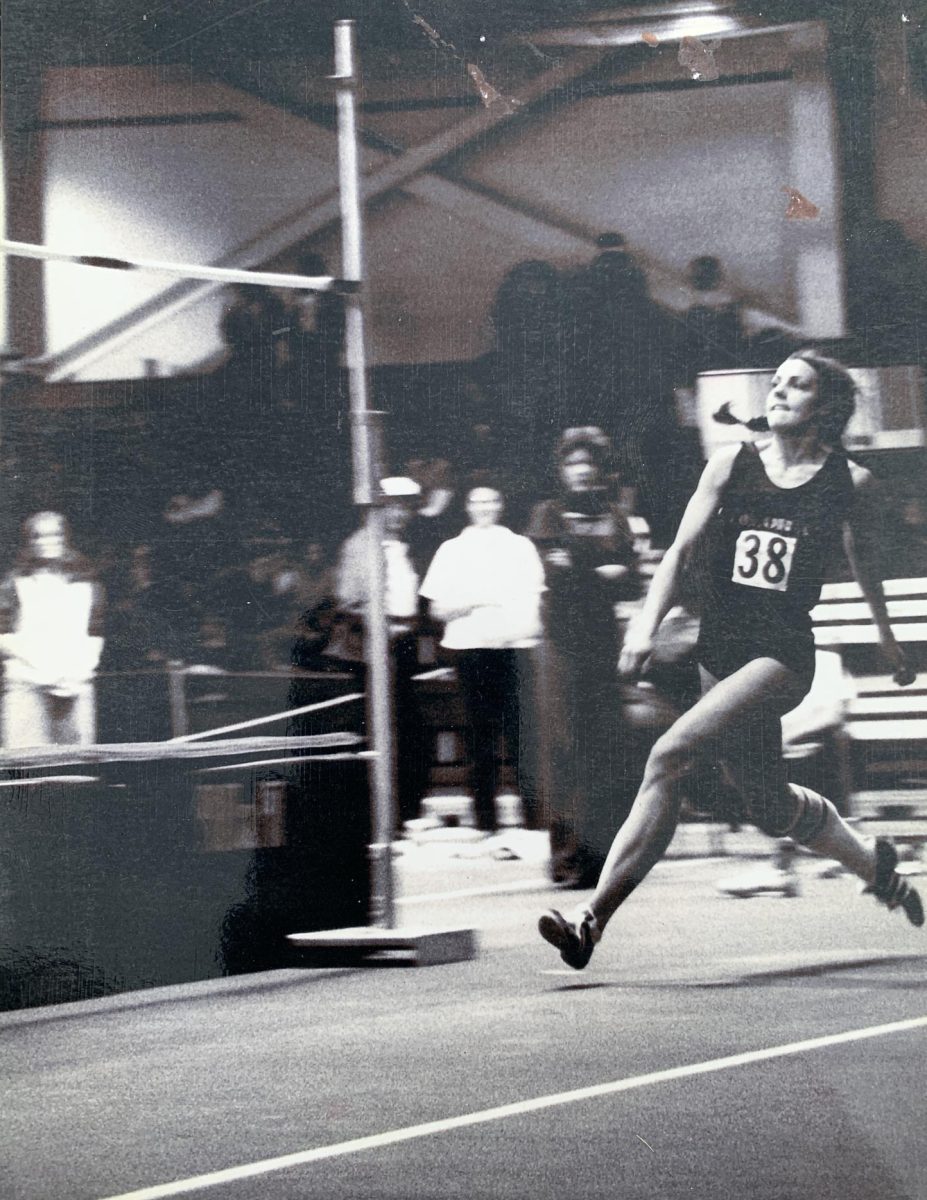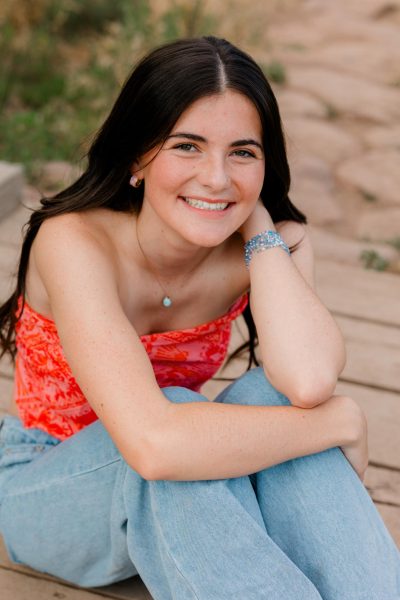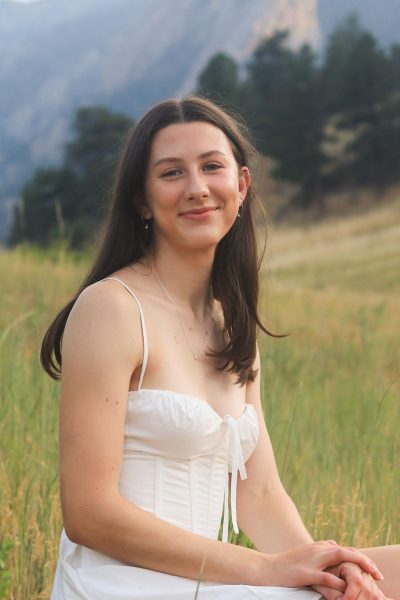A nine-year-old girl in Sweden at her first track meet. A young boy in Los Angeles, California. They had no idea that in 1984 they would both be competing at the Olympics. Or that in 2024, they would both be coaching track and field at Monarch High School.
Track and field coach Annette Bank began her career in elementary school. Growing up in Sweden, she had one meet in the fall and one meet in the spring.
“I beat the guys in the running events, so I thought, ‘Oh, this is really fun,’” Bank said. “So I stuck with it.”
A year later, at 10 years old, Bank’s father, a decathlete, asked if she wanted to join a track club. She did.
“I liked everything—running, throwing, jumping,” Bank said. “My sister and I would go once a week, and we had really good coaches.”
Her coaches made sure that she advanced quickly. At just 12 years old, she won the high jump at the Swedish Donald Duck Championships, a national meet for her age group. Bank was jumping so high that the typical scissor technique, where you land on your feet after jumping, was no longer working.
“My coach had seen Dick Fosbury, and he said that you should just try and land on your back,” Bank said. “I was one of the first in Sweden to do that. Then right away I increased.”
This accomplishment allowed Bank to make the national team in high jump when she was just 15 years old. In a meet where Sweden competed Norway, Bank claimed a victory, equalizing the record between the two nations.
The competitions only got bigger. When Bank was 18, she made the 1976 Olympics and placed seventh.
“After the Olympics, I felt like nothing was as exciting,” Bank said. “I had a hard time psyching myself up to compete anymore. I almost lost the Junior Swedish Championship back from the Olympics.”
Then in 1978, she was recruited to run for the University of Colorado in Boulder.
After coming to CU, she went home the following fall to train for the 1980 Olympics. It was impossible to compete for the school and participate in the European season, so she had to make a sacrifice.
Things did not go as planned.
“That’s when I tore my Achilles,” Bank said. “I couldn’t compete that year, and then I had surgery when I came back to school here.”
As a result of her injury, Bank was afraid to high jump. The injury was on the foot she jumped with, so she shifted her focus to long jump, javelin, and hurdles. She started improving in these events before she returned to high jump.
“So I said, ‘I’m going to try for the heptathlon in the next Olympics,’ ” Bank said. “I did the World Championships in 1983, and was ninth in the heptathlon.”
Then in 1984, at 26, Bank qualified for the Olympics again–this time joined by her sister. She competed in both the heptathlon and the long jump, placing 14th in both.
After the Olympics, Bank came back to Boulder to finish up her schooling. Once she graduated, she planned to return to Sweden and become a PE teacher.
“I met my ex-husband and we got married, and then we moved back here because he was a lawyer here,” Bank said. “We had two kids and I didn’t want to move back to Sweden when we divorced.”
Eventually, Bank’s daughter started attending Monarch. When she began competing in track and field, Bank decided to start coaching.
But Bank wasn’t the only Olympian to wind up at Monarch High School. She brought another elite athlete with her.
Mike Tully, a former American Olympian, now coaches pole vault at Monarch.
“My parents wouldn’t let me play football, and I knew I could high jump, so I just went out and started high jumping,” Tully said. “And then that same day, I started pole vaulting.”
Within just three years of learning to pole vault, Tully became the Junior World Record holder. Then in 1978, he broke two indoor world records.
Tully eventually competed for the University of California, Los Angeles (UCLA), where he still holds two records.
“I only competed in the ‘84 Olympics, but I made the ‘80 team that the United States boycotted,” Tully said. He placed second in the Los Angeles games, receiving a silver medal.
Not only did Bank and Tully compete at the same Olympics, but they also attended several meets together throughout their careers.
“We met in 1975 in Stockholm, so it’s been a little under 50 years that we’ve known each other,” Tully said.
Although they had competed and interacted over the years, the two lost touch for 25 years.
“In 2010, I saw him on Facebook and messaged him,” Bank said. “He wasn’t coaching in L.A., and then when he came out to visit me here, I took him to Monarch, and he immediately started helping people.”
After losing touch for many years, Bank’s simple decision to message an old friend on Facebook had a lasting impact. It was that one message that led two former Olympians to Monarch track and field.
“That’s how I got here,” Tully said. “I wouldn’t be here if it wasn’t for that.”

































